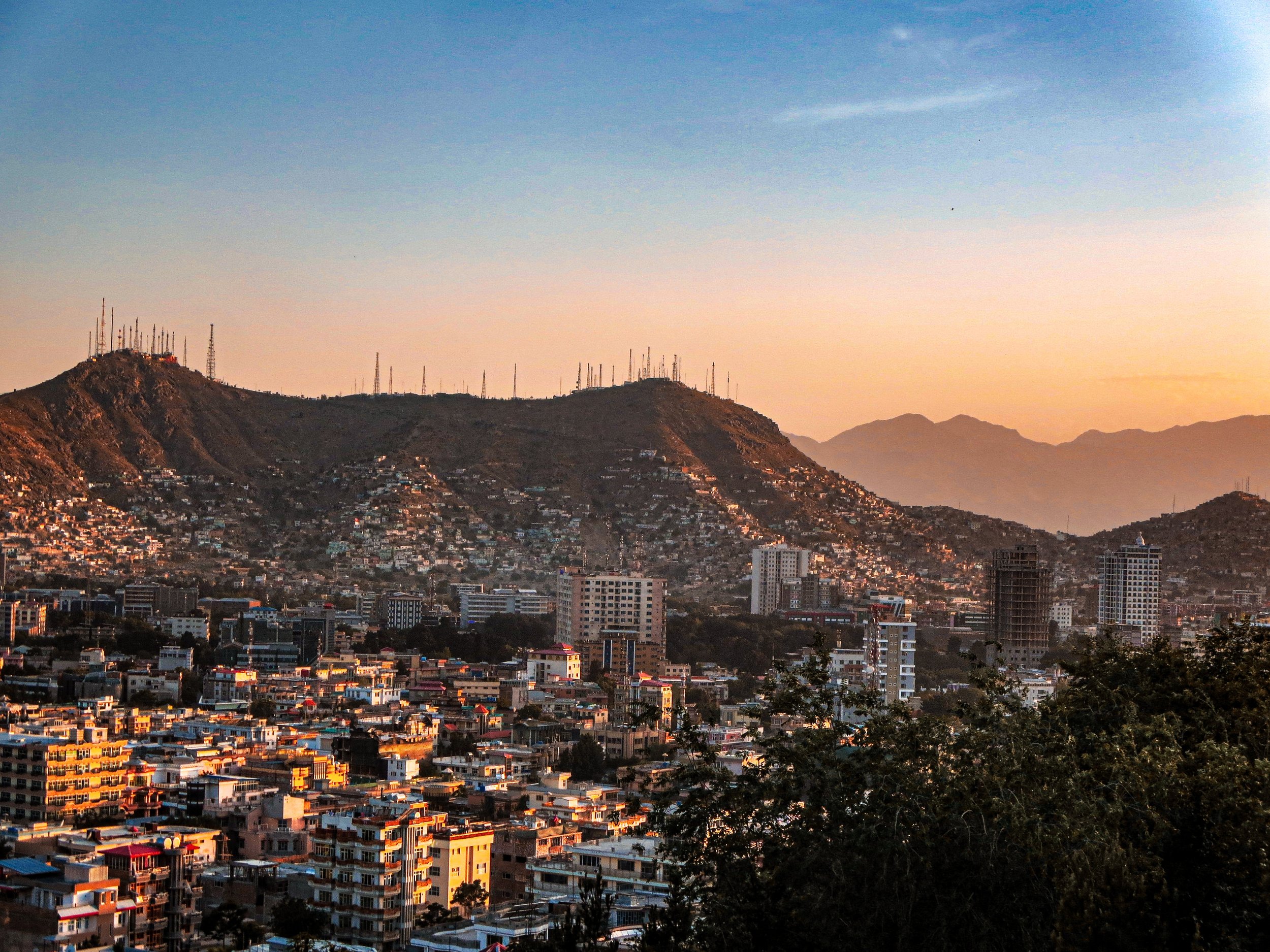Day 117: Two Years and a Lifetime from Kabul
Kabul, from a distance. Photo by Mohammad Husaini on Unsplash
Nearly two years ago, five students from the WVU Immigration Law Clinic accompanied me and a colleague to a government facility in Wisconsin where tens of thousands of Afghans who’d supported the U.S. war effort awaited resettlement in the United States.
If you’ve never been to central Wisconsin in January — well, it was COLD. Like, double digits below zero cold, at least at night, and not much warmer during the day. A substantial snowfall just before our arrival left the ground between buildings impassable, though the state and federal authorities did a masterful job of clearing the roads.
We did our work in one long, narrow building — like a double-wide trailer, really. It had a small office on the east end big enough for one desk and one chair. The office gave way onto a large open room with several long tables. We worked with our coats on. The students and I would each take a table, and Afghan “guests,” as the federal government called them, arrived one at a time and told us stories of weeks spent fleeing the Taliban and lives spent resisting them. I saw videos of torture on social media. I saw official letters , delivering a verdict of death to the person I sat with. One such letter, already translated, said, “You have no right to appeal.”
At the other end of the building was another open space made into a multi-person office: multiple desks around the perimeter, a couple of bulletin boards, a printer, and two long common tables in the middle. In that room, “guest volunteers” worked alongside volunteer attorneys like us. The guest volunteers were mostly younger Afghans, many from Kabul, who had lived most or all of their lives in U.S.-occupied Afghanistan. They spoke good English, handled technology well, and served as translators or technical assistants for their compatriots with fewer such skills.
Between helping other guests, we worked together on the guest volunteers’ own statements. Sometimes, a cheerful young man or woman who had worked alongside me for weeks, helping others, would share their own story, usually one of incomprehensible trauma and risk. We shared snacks — dried fruits, baklava, donuts, bite-sized candy bars. We ordered pizza and hot chocolate for a farewell party when a group of young women left for the university that had accepted them as students. We threw a party with Afghan stew and chocolate cake when a full-time attorney departed.
Two Years Later
After that volunteer experience, the Immigration Law Clinic accepted several guest volunteers and their immediate family members as clients. We filed applications for asylum or for Special Immigrant Visas. Several other Afghans now attend WVU as students.
Today, I worked with one of our clients on a new application. Now approved as an asylee, he can file for his immediate family to join him. We worked by phone today to finalize and sign his applications.
I sat side by side with a WVU student whom I first met in that makeshift office in frozen Wisconsin. Now fluent in English, the student has been working for the Immigration Law Clinic this fall, translating documents from Pashto and Dari, interpreting applications from English to the client’s language. Watching the student handle the legal processes with competence and grace, I felt an unnameable, perhaps unjustified, pride in her progress.
I wish for these young men and women that their journeys could have been different. But we don’t get to choose that. I am grateful for the extraordinary privilege of having shared in their journeys, and having some of them now join us in ours.
